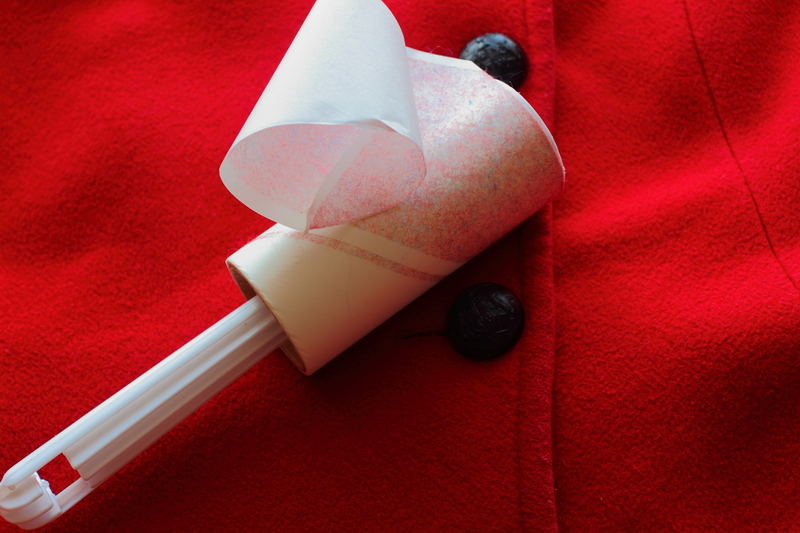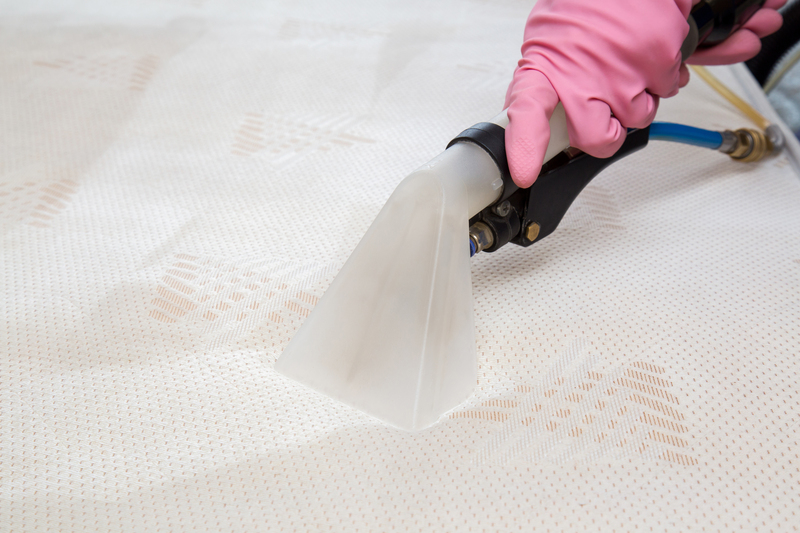Revitalize Your Home with Carpet and Hard Flooring Cleaning
Posted on 23/08/2025
Revitalize Your Home with Carpet and Hard Flooring Cleaning
Your home is a sanctuary, a place where you relax, entertain guests, and create lasting memories with your loved ones. Keeping it clean not only makes it more inviting but also extends the life of your interiors. Among the essential tasks to maintain a healthy and beautiful home, carpet and hard flooring cleaning stands out as a priority. In this comprehensive guide, discover how to refresh every room by revitalizing your carpets, hardwood, tile, and other flooring types to transform the way your home looks and feels.
Why Regular Carpet and Hard Flooring Cleaning Matters
Clean floors play a significant role in your home's overall comfort and health. Over time, dirt, dust, allergens, and bacteria can accumulate in carpets and on hard floors, impacting air quality and even irritating allergies or respiratory conditions. Infusing new life into your home relies on thorough, regular, and effective floor cleaning practices.
- Enhances appearance: Clean carpets and floors look brighter, fresher, and more welcoming.
- Prolongs flooring lifespan: Regular cleaning prevents unnecessary wear and tear, saving you money in the long run.
- Improves indoor air quality: Removing allergens and dust keeps the air healthier--vital for those with asthma or allergies.
- Prevents stubborn stains and damage: Immediate and regular cleaning tackles spills and dirt before they set in.
- Boosts your home's value and appeal: Clean, well-maintained floors are a real asset, especially if you plan to sell or rent your property.
Understanding Different Types of Flooring
Every home features a variety of flooring types, and each requires unique care. Here's a quick guide to the most common flooring surfaces and their distinct cleaning needs:
- Carpet: Absorbs dirt and stains easily; requires deep cleaning beyond simple vacuuming.
- Hardwood: Sensitive to moisture but benefits from polishing; demands gentle but regular cleaning.
- Tile & Grout: Prone to grime and mildew build-up in grout lines; durable but needs specific cleaning agents.
- Luxury Vinyl & Laminate: Water-resistant surfaces, but excessive moisture and harsh chemicals can cause damage.
- Natural Stone: Requires pH-neutral cleaners to avoid etching or discoloration.
Best Practices for Carpet Cleaning
Routine Maintenance for Carpets
Vacuuming: Vacuum carpets at least twice a week to remove surface dirt, dust, and pet hair. Focus especially on high-traffic areas.
Spot Cleaning: Address spills immediately using gentle blotting--never rub, as this can set stains deeper into the fibers.
Deep Cleaning Techniques
Steam Cleaning: Using hot water extraction (commonly known as steam cleaning) is highly effective at deep-cleansing and sanitizing carpets. This process removes dirt, bacteria, and allergens embedded in the fibers.
Dry Carpet Cleaning: For delicate carpets or in areas that need quick drying, dry cleaning methods are available. These involve specialized powders or foams that absorb grime and are then vacuumed away.
Professional Carpet Cleaning: Even with diligent home maintenance, professional carpet cleaning should be performed once or twice a year. Trained technicians use commercial-grade equipment and eco-friendly solutions to rejuvenate your carpets completely.
Tips for Keeping Carpets Clean Longer
- Use doormats at entryways to minimize track-in dirt and grit.
- Remove shoes indoors to prevent outside debris from grinding into carpet fibers.
- Rotate and rearrange furniture to prevent wear patterns.
- Invest in regular professional cleaning for busy households or homes with kids and pets.
Effective Hard Floor Cleaning Methods
Hardwood Floors
Sweeping and Mopping: Dust daily using a microfiber mop or soft broom. For mopping, use a damp (not wet) mop with a specialized hardwood cleaner, avoiding excess water to prevent warping or staining.
Polishing and Buffing: Periodically, polish hardwood floors to restore their shine and protect the finish. Buffing can also remove minor scratches and scuffs, keeping your floors looking their best.
Tile and Grout Cleaning
Routine Cleaning: Sweep or vacuum dust and debris from tiles, then mop with a pH-neutral cleaner.
Deep Cleaning Grout: Grout lines are notorious for trapping dirt and mildew. Use a mixture of baking soda and vinegar or a commercial grout cleaner, scrubbing gently with a soft brush. Rinse thoroughly to keep tile floors gleaming and hygienic.
Vinyl and Laminate Flooring
Water Caution: While these floors resist moisture, excessive water can seep into seams and cause swelling or warping. Clean with a barely damp mop and avoid harsh chemicals that could cause fading.
Sweeping and Vacuuming: Use soft attachments to prevent scratches. Spot clean stains promptly for the best results.
Natural Stone Care
Gentle Cleaning: Never use acidic or abrasive cleaners, which can damage the stone. Use pH-neutral products and a soft mop to maintain glamour without harming the surface.
- Seal natural stone floors regularly to guard against staining and water penetration.
- Avoid dragging heavy objects to prevent scratching.


Benefits of Regular Carpet and Floor Cleaning
Beyond superficial cleanliness, consistent carpet and hard surface cleaning unlocks a host of benefits for your entire household:
- Healthier Living Environment: Allergens, dust mites, pet dander, and bacteria are effectively minimized.
- Enhanced Appearance: Your home looks fresher and more spacious when floors are spotless.
- Prevents Costly Repairs: Addressing dirt and grime early averts long-term damage and expensive restoration down the road.
- Improves Mood and Comfort: Returning home to pristine flooring uplifts your spirit and creates lasting positive impressions for guests.
- Eco-Friendly Options: Many modern cleaning solutions are biodegradable, ensuring a clean home and a cleaner planet.
Eco-Friendly Cleaning Tips
Going green with your carpet and floor maintenance is easier than ever. Here are some sustainable strategies:
- Choose non-toxic, biodegradable cleaning agents to protect your family and the environment.
- Use reusable, washable microfiber cloths and mops instead of disposable wipes.
- Try natural cleaning solutions like baking soda, white vinegar, or castile soap (but always check suitability for your floor type).
- Hire professional cleaners who use environmentally friendly products and sustainable practices.
How to Handle Common Carpet and Flooring Problems
Dealing with Stains on Carpets
Immediate action is crucial for stain removal.
Blot, don't rub! Use a clean, white cloth to blot up spills. Then, apply a mild detergent mixed with water, and continue blotting. For stubborn stains, consider a professional stain remover or consult a certified carpet cleaner for advice.
Scratches and Scuffs on Hardwood
- Use wood-repair markers or sticks to conceal surface scratches.
- For deeper gouges, wood filler or refinishing may be necessary.
- Lay rugs in high-traffic zones and use protective pads under furniture to minimize future damage.
Mildew and Mold on Tile or Grout
Prevention is key--keep grout dry and ventilate moist areas. Clean with a baking soda paste or diluted bleach, but avoid overuse, which can degrade grout.
Choosing the Right Professional Cleaning Service
Sometimes, DIY isn't enough to achieve that deep-down freshness your floors deserve. A professional carpet and hard floor cleaning company can dramatically revitalize your home. Here's what to look for:
- Certified Technicians: Ensure staff are trained and certified for the latest cleaning methods and technologies.
- Custom Cleaning Solutions: Look for companies that tailor their services to your specific needs and types of flooring.
- Eco-Friendly Products: Inquire about green cleaning options for minimal chemical exposure and lower environmental impact.
- Transparent Pricing: Get quotes up front and ask about satisfaction guarantees.
- Positive Reviews: Check reputable review sites or testimonials for customer satisfaction insights.
DIY vs. Professional Floor Cleaning: What's Best?
While routine upkeep is possible with household tools and cleaners, certain situations require the expertise and equipment of professional services:
- Large or stubborn stains in carpets that home products can't tackle.
- Deep cleaning of high-traffic flooring that looks dull despite regular mopping/vacuuming.
- Restoring delicate or specialty floors such as natural stone or antique hardwood, where improper cleaning could cause irreparable harm.
- Prepping your home for major events or property sales, where immaculate flooring makes a powerful impression.
In summary, for everyday maintenance, DIY methods using proper techniques and products work well. For restorative, deep, or specialty cleaning, investing in professional help is the most effective way to revitalize your home's carpets and hard floors.
Conclusion: Transform Your Home with Expert Carpet and Flooring Care
Carpet and hard flooring cleaning should not be overlooked in your home upkeep routine. With the right strategies, you can prevent stains, eliminate hidden dirt, and maintain surfaces that look beautiful, feel clean, and last for years. Whether you're spring cleaning, prepping for guests, or simply enjoying a fresh environment each day, revitalizing your floors is an investment in the comfort, health, and value of your home.
Start revitalizing your home today! Whether you choose high-quality cleaning products, eco-friendly DIY techniques, or enlist professional help, the result is the same: a brighter, healthier, and more welcoming atmosphere for you and your family.
Frequently Asked Questions (FAQs)
-
How often should I clean my carpets?
At a minimum, vacuum weekly and perform professional deep cleaning every 6-12 months, or more often for high-traffic areas or if you have pets/kids. -
What is the best method for cleaning hardwood floors?
Use a dry or slightly damp microfiber mop daily and a hardwood-specific cleaner weekly. Don't use excessive water or harsh chemicals. -
Is professional floor cleaning worth the cost?
Yes--professional cleaning extends floor longevity, enhances appearance, and can even improve your family's health by eliminating allergens and deep dirt. -
Can I use vinegar on all hard floors?
No. Vinegar is safe for tile but may damage natural stone and some finishes on hardwood. Always check manufacturer recommendations. -
How can I keep my floors clean longer?
Use doormats, remove shoes, clean up spills quickly, and stick to a consistent routine for the best results.
Revitalize your home--with brilliant, clean carpets and sparkling hard floors, you'll notice the difference in every step you take!
Latest Posts
Banish Grease for Good: Master the Art of Cleaning Enamel Oven Trays
Combat Damp Smells With These Pro Tips
Unlock Professional Car Cleaning Secrets Today
Efficient Tips to Eclipse Household Cleaning
Embrace Fresh Beginnings: Tackle Cleanliness with Our Spring Deep Clean Guide



